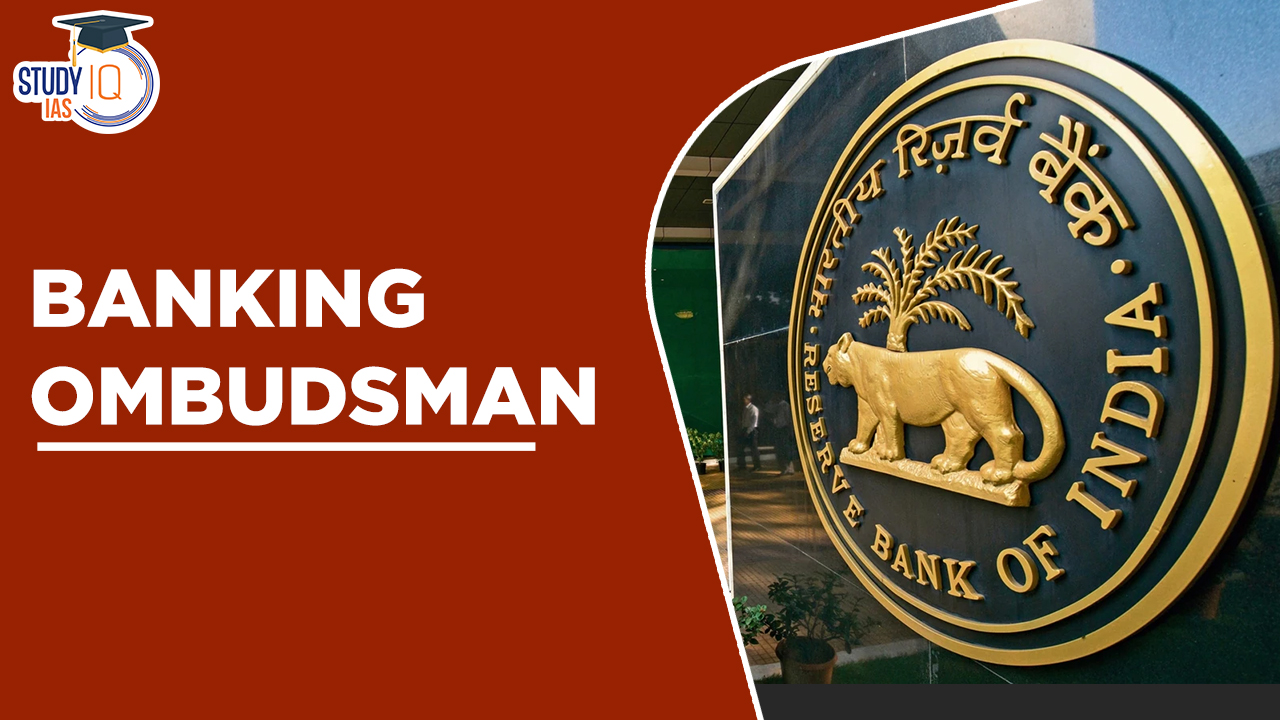Table of Contents
Banking Ombudsman
The Banking Ombudsman is designated to resolve complaints and disputes between banks and their customers. This includes issues related to banking services, such as non-adherence to regulations, improper account handling, unauthorized transactions, and other grievances faced by bank customers.
Read about: Non-Performing Assets
What is an Ombudsman?
An ombudsman is a government official or office established to handle complaints and disputes made by ordinary citizens against public organizations, institutions, or government agencies. The term “ombudsman” originated in Sweden and refers to an officer appointed by the legislature to address complaints related to services or administrative authorities.
In India, the concept of the ombudsman has been adopted to provide a mechanism for resolving grievances in various sectors. Some examples include:
Insurance Ombudsman
The Insurance Ombudsman is responsible for addressing complaints related to insurance services. This includes disputes regarding claim settlements, policy terms, delays, unfair practices, and other issues faced by policyholders.
Income Tax Ombudsman
The Income Tax Ombudsman is appointed to handle complaints regarding income tax matters. This includes grievances related to delays in tax refunds, incorrect assessment, non-issuance of refunds, and other issues faced by taxpayers.
Banking Ombudsman
The role of an ombudsman is to provide an impartial and independent platform for individuals to voice their concerns and seek a fair resolution. Ombudsmen typically have powers to investigate complaints, mediate disputes, recommend remedies, and facilitate settlements between the aggrieved parties. They act as a bridge between the public and the organizations, ensuring accountability, transparency, and fairness in the functioning of public institutions.
Read about: India Post Payment Bank
Banking Ombudsman Scheme
The Banking Ombudsman Scheme was introduced in 2006 by the Reserve Bank of India (RBI) under Section 35A of the Banking Regulation Act, 1949. It came into effect on January 1, 2006. Here are the key details about this scheme.
| Key Features | Details |
| Appointment and Tenure | A Banking Ombudsman is appointed by the government and serves for a period not exceeding three years. There is a possibility of extension for an additional two years, subject to an overall age limit of 65 years. |
| Free of Charge | The services of the Banking Ombudsman are provided to consumers free of charge. There is no fee or cost involved in filing a complaint. |
| Applicability | The Banking Ombudsman Scheme applies to all types of banks, including rural, commercial, regional, and cooperative banks across India. |
| Grounds for Complaint | Consumers can file complaints under various circumstances, including non-adherence to RBI rules and regulations, wrongful closure of deposit accounts, unjustified loan rejections, refusal to open new deposit accounts without valid reasons, unauthorized fees or charges, and non-compliance with RBI instructions regarding credit cards, debit cards, and ATM transactions. |
| Preconditions for Filing Complaints | Complaints must be in written form and initially sent to the concerned bank. If the complaint is rejected or no response is received within one month, the consumer can approach the Banking Ombudsman. The complaint should not be under consideration by courts or tribunals, and the compensation sought should not exceed INR 1 lakh. The complaint should also be genuine, without any malicious intentions. |
| Filing a Complaint | Consumers should file their complaints with the Banking Ombudsman under whose jurisdiction the bank is located. The complaint can be filed by the consumer directly or through legal representatives. Electronic filing is recommended, and copies of the complaint should be submitted to the Banking Ombudsman’s office. |
| Duties of the Banking Ombudsman | The Banking Ombudsman is required to adhere to RBI laws, directions, and instructions. When issuing an award, the Ombudsman must provide valid reasons. Additionally, the Ombudsman has the authority to award compensation for mental stress, physical agony, harassment, and expenses incurred during the complaint process. |
Read about: Micro ATMs
RBI Integrated Ombudsman Scheme
The Integrated Ombudsman Scheme of the Reserve Bank of India (RBI) aims to amalgamate three existing ombudsman schemes and provide a unified platform for resolving customer complaints related to a deficiency in services provided by RBI-regulated entities. Here are the details of the scheme:
Amalgamation
The Integrated Ombudsman Scheme combines the Banking Ombudsman Scheme of 2006, the Ombudsman Scheme for NBFCs of 2018, and the Ombudsman Scheme for Digital Transactions of 2019.
Scope
The scheme covers complaints against RBI-regulated entities, including banks, Non-Banking Financial Companies (NBFCs), and prepaid instrument players. It also includes non-scheduled primary cooperative banks with a deposit size of Rs 50 crore and above. The integrated scheme adopts a “One Nation One Ombudsman” approach and is jurisdiction-neutral.
Redressal Process
The scheme provides redressal for customer complaints when they are not resolved to the satisfaction of the customers or when there is no response within 30 days from the regulated entity. The scheme defines “deficiency in service” as the ground for filing a complaint.
Grounds for Complaint
The scheme expands the grounds for complaints and eliminates the issue of complaints being rejected on technical grounds. It specifies a list of exclusions, and complaints will no longer be rejected solely on the basis of not being covered under the listed grounds.
Centralized Processing Center
A centralized receipt and processing centre has been established in Chandigarh to handle complaints in any language. This centre allows for streamlined and efficient handling of complaints.
Use of Technology
The scheme incorporates the use of Artificial Intelligence tools to enhance coordination between banks and investigating agencies, enabling faster resolution of complaints. Customers will be able to file complaints, submit documents, track status, and provide feedback through a single email address. A multilingual toll-free number will also be available for providing relevant information on grievance redress.
Appellate Authority
The Appellate Authority under the integrated scheme is the RBI’s Executive Director-in-charge of the Consumer Education and Protection Department.
Benefits and Significance
The scheme is expected to improve the grievance redressal mechanism for resolving customer complaints against RBI-regulated entities. It aims to ensure uniformity, provide streamlined user-friendly mechanisms, and enhance customer satisfaction and financial inclusion. The integration of the ombudsman schemes will benefit approximately 44 crore loan account holders and 220 crore deposit account holders, providing them with a single platform for lodging complaints and tracking their status.
Read about: MCLR Marginal Cost of Funds Based Lending Rate
Banking Ombudsman UPSC
The topic of the Banking Ombudsman is important for UPSC (Union Public Service Commission) preparation as it falls under the domain of governance, public administration, and consumer protection, which are key components of the UPSC Syllabus. Aspirants aiming to crack the UPSC exam should have a comprehensive understanding of the role of the Banking Ombudsman, its functions, jurisdiction, and its significance in resolving grievances in the banking sector. Knowledge of this topic can be gained through UPSC Online Coaching, self-study, and practicing UPSC Mock Test to ensure a well-rounded preparation for the exam.
Read about: Reserve Bank of India
| Economy Related Government Schemes | |
| Gold Monetization Scheme | Direct Benefit Transfer |
| Banking Ombudsman Scheme | Mission Indradhanush for PSBs |


 Goods and Services Tax (GST), Objectives...
Goods and Services Tax (GST), Objectives...
 World Oceans Day 2025, History, Theme, S...
World Oceans Day 2025, History, Theme, S...
 World Environment Day 2025, Theme, Histo...
World Environment Day 2025, Theme, Histo...





















